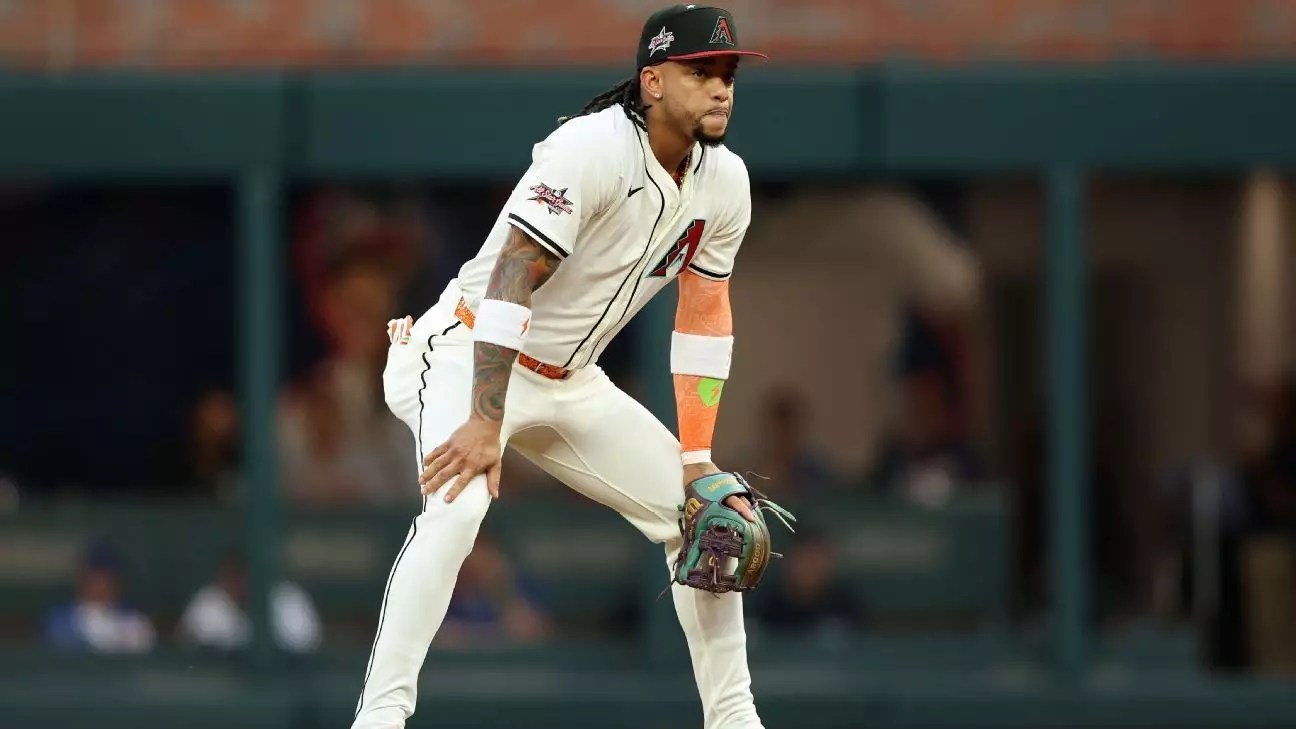In the glamorous realm of professional sports, the aura of invincibility often clouds reality. Fans and media alike tend to elevate athletes to mythic status, overlooking their human vulnerabilities. Ketel Marte’s recent situation exemplifies this dissonance: a top-tier performer, celebrated for his offensive prowess, yet subjected to relentless scrutiny for personal choices and off-field decisions. Society’s obsession with perfection creates an environment where even legitimate struggles are met with condemnation, rather than empathy. The pressure is compounded by the expectation that athletes must always perform, never falter, and never admit imperfection. This toxic environment discourages genuine vulnerability, turning athletes into prisoners of their own stardom.
Accountability and Transparency: A Double-Edged Sword
Marte’s candid apology through an interpreter was a rare display of transparency in a culture driven by spectacle and judgment. While some criticize him for missing games, it’s crucial to recognize the complexities behind such decisions. The burglarized home and subsequent emotional distress provide context—human hardships that rarely fit into the polished narrative of a sports star. Yet, criticism persists, revealing a society that demands unwavering dedication without considering individual circumstances. Genuine leadership entails acknowledging vulnerabilities, yet the prevailing attitude dismisses personal struggles as excuses, rather than opportunities for understanding. Building a mature sports culture requires embracing authenticity, not punishing it.
The Consequences of Public Scrutiny on Team Dynamics
The fallout from Marte’s absence highlights how external criticism can seep into locker room harmony. Rumors of teammates’ frustrations and the team’s subsequent struggles reflect a deeper issue: the conflation of personal accountability with public image. When a player’s off-field choices are scrutinized more vigorously than their on-field contributions, it creates a toxic environment conducive to division. The Arizona Diamondbacks’ decision to trade key players amid a losing streak underlines the fragility of team cohesion when external pressures intensify. Athletes like Marte are caught in a balancing act—striving for excellence while resisting unwarranted judgment from fans and media alike. The mental strain of this environment can diminish performance and undermine team unity.
Shifting Perspectives: From Blame to Understanding
True progress in sports culture necessitates a paradigm shift: viewing athletes as whole people rather than unbreakable icons. Marté’s stellar season, marred by controversy, underscores the importance of recognizing resilience amid adversity. His contributions on the field remain impressive, and his willingness to publicly address internal struggles is commendable, not condemnable. Leaders and fans alike must foster a more compassionate approach, emphasizing support over scapegoating. This shift benefits not only individual athletes but also promotes healthier team environments and a more sustainable model of competition rooted in mutual respect.
The Power of Center-Left Liberal Values in Shaping a Fair Sports Environment
A center-wing liberal perspective advocates for compassion, fairness, and humility. Applying these principles to sports means acknowledging the humanity of players and resisting the urge to vilify them for personal hardships. Instead of sensationalizing off-field issues or punishing players for genuine setbacks, the focus should be on creating support systems that promote mental health and emotional resilience. Athletes are symbols of perseverance, not infallible gods. Recognizing this fosters a more balanced narrative—one that celebrates excellence without sacrificing empathy. As society evolves, so too must our expectations for athletes, by emphasizing integrity and human dignity over fleeting headlines and superficial judgments.
Marte’s experience reveals a broader societal failure: the inability to reconcile excellence with vulnerability. In an era where social media amplifies every misstep, cultivating a culture of understanding is more crucial than ever. True leadership involves standing not just for wins and records but also for compassion and fairness. Only then can sports reclaim their role as a reflection of our best human qualities, rather than a battleground for unchecked criticism.

